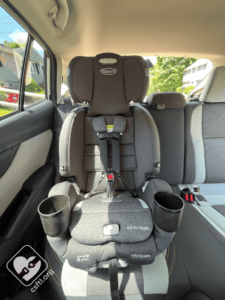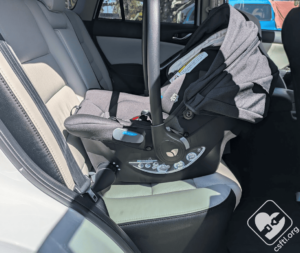First Aid for the Soul: Equipping the Car with Psychological Tools

Life behind the wheel can be filled with frustration. Traffic backups, aggressive drivers, running late – it’s easy to become overwhelmed and stressed. This takes a toll on our mental health. Having the right psychological tools on hand can help drivers maintain perspective, stay centred, and prevent road rage.
Imagine keeping an emergency and first aid kit for the driver in your car, not for cuts and scrapes, but for your state of mind. What if you had quick tools to calm yourself down, reframe your thinking, and drive with clarity? Building a “first aid kit for the soul” while driving can work wonders.
Let’s explore some methods for equipping your car with psychological tools to help you stay cool, calm, and collected. From prompts for self-reflection to practices for mindfulness, these techniques can help you master the mental game of driving. You’ll learn how to handle tense situations smoothly and maintain your peace of mind behind the wheel.
Methods of Self-Reflection
Having time for self-reflection while driving can be extremely beneficial for your mental state. Here are some ways to build in reflective practices:
Guided Meditations – Download meditations or mindfulness exercises onto your phone or burn CDs to listen to. Having 5-10 minute guided practices can help calm your nerves.Reflection Journal – Keep a small notebook in your glove box. Jot down thoughts, feelings, daily gratitudes, or reflections. Writing things down can be cathartic.Positivity Playlist – Make a playlist of positive, upbeat songs. Music has a profound impact on our emotions. Use this playlist to lift your spirits.Conversation Prompts – Write down reflective questions and keep them in your car. Some examples: What am I grateful for today? How can I show compassion on the road?
Having prompts or tools to take a few minutes for reflection can work wonders on your state of mind behind the wheel.
Cultivating Positive Thinking
Our thoughts impact our emotions and behaviour. Practising positive thinking in the car can set the tone for your whole day. Here are some ideas:
Positive Mantras – Come up with a few short, uplifting phrases that resonate with you personally. Examples could be “Stay calm”, “I’ve got this”, or “Patience brings peace”. Keep these mantras written down and repeat them aloud to yourself during stressful moments behind the wheel. Having a few go-to positive sayings in your back pocket can help recentre your mindset when frustration mounts.Appreciation – Take a few moments to appreciate the good things around you. Mentally recognise the blessings in your life, both big and small. Think of what you feel grateful for.Goodwill – Silently wish well for other drivers, rather than judging errors. Offer up kindness and understanding for your fellow humans on the road.Positive Imagery – Visualise arriving safely at your destination, smiling and ready for your day. Picture yourself remaining cool, calm, and collected while handling any driving situation.Inquisitiveness – When frustration creeps up, get curious about it. Ask yourself questions like “I wonder what is behind that behaviour?” or “How could I handle this situation in a more positive light?” Getting inquisitive can help reframe your mindset.
With practice, you can retrain your brain to default to uplifting, constructive thoughts while driving.
Reflection and Mindfulness
Adding quick mindfulness practices into your drive can make a big difference in your stress levels and mood. Here are some easy ways to be more mindful behind the wheel:
Focus on your breathing – Place one hand on your chest and focus on taking slow, deep breaths. Re-centre yourself.Be present – Turn off distracting phones and music and just pay attention to the physical sensations of driving. Feel the wheel, the pedals, etc.Scan for beauty – Notice lovely scenery, interesting architecture, beautiful flowers. Let the goodness around you sink in.Express gratitude – Thank the car for working properly. Mentally thank other drivers for good behaviour.Release judgement – Don’t label drivers as “bad” or “crazy”. See them as fellow humans worthy of patience.Listen fully – Turn off the radio and open your ears. Be present with the sounds of the road.
Taking just 60-90 seconds at a stop light to be mindful and reflect can change your outlook and calm your emergency. Keeping tools for self-reflection, positive thinking, and mindfulness in your car first aid kit can equip you to drive with clarity and handle any situation with grace.







